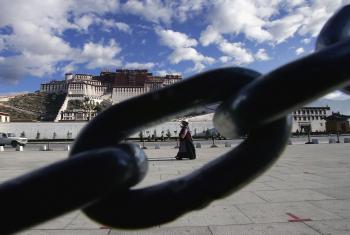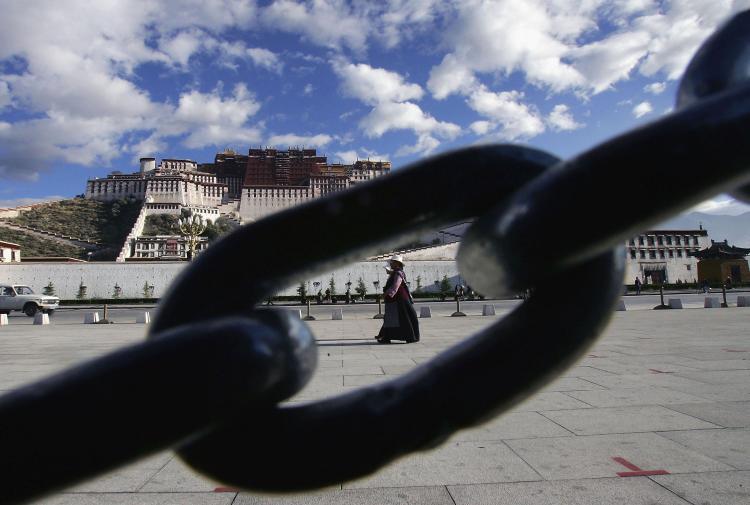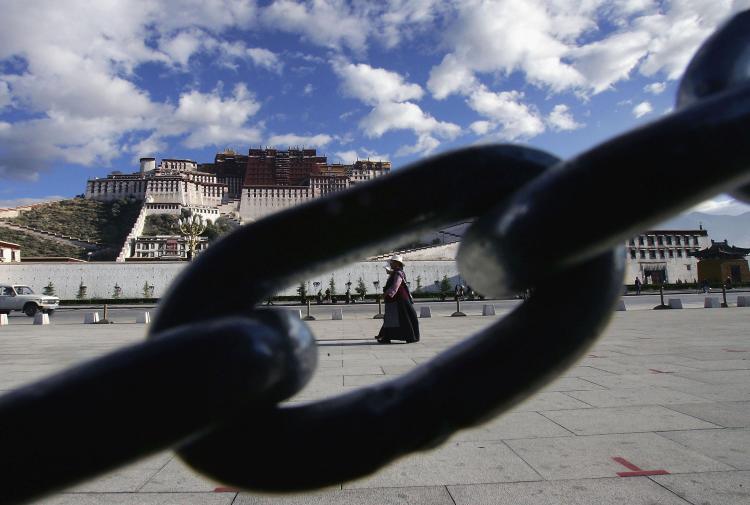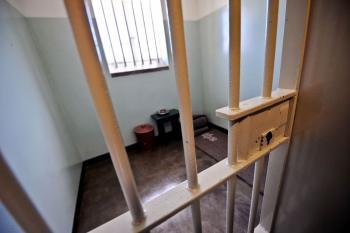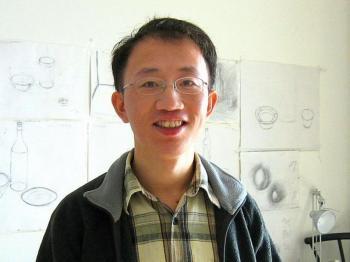“When I think about Tibet,” says the petite Han Chinese, now in her mid-sixties, “over 20 years of serious travail reappear in my mind. Twenty years, during which I would’ve preferred to live and work in Beijing, and where my little daughter would have always been with me.”
In 1960, the young artist traveled to Lhasa as a member of a dance and drama ensemble. Not voluntarily, rather “on orders from above,” the Chinese Communist Party (CCP). Her family belonged to those with “black roots.” They came from a bourgeois family, under high scrutiny by those in power in the CCP. Reason enough not to oppose and follow orders, especially since her husband had to go to Lhasa with the military, as well as earlier with the occupation of Tibet in 1959.
The first part of the train journey to Tibet was difficult, but not as exhausting as the remainder of the journeying within the country—on bone-rattling trucks for five days; across 5,000 meter-high mountains; on roads that don’t deserve names. Headaches plagued the cast members all the time, and they had to get used to the climate in Lhasa. But their complaints were not taken into account.
The whole cast lived in an old, still intact Buddhist monastery. The monks fled before the soldiers arrived. It was not destroyed—simply unoccupied.
The second wave of destruction continued into the late sixties, under the Cultural Revolution. She and her colleagues had been recruited into an ensemble to entertain both the Chinese military as well as the indigenous population. Tibetans were also trained in Beijing for at least three years, not only in becoming dancers and singers, but their heads were filled with the obligatory party propaganda.
“We didn’t really fear Tibetans, but in the evening we were not allowed out on the streets, and otherwise could only go out in threes. In the temple we danced on the altar. We were not afraid, or at least we didn’t show it,” she says. She’s still concerned about endangering herself or the others. The CCP’s long arm is always looking for those that think outside the box, or “free thinkers,” so they can silence them. Hence she gives me no names and no details.
Inner censors in our heads
Following the birth of their daughter, the new parents were extremely sad when they had to send their daughter to Beijing alone—her father had to remain in the military. She went to Beijing, because Han Chinese children can rarely tolerate the harsh mountain climate in Tibet. For three years aunts raised her, but they were either sick, or afraid of persecution from the Party. The little one became a “commuter-child.”
When the mother could finally take her to Lhasa three years later, her daughter suffered a circulatory collapse upon arrival. With the child in her arms, the mother rushed to the hospital. They tried to get rid of her. “Previously I have never knelt down before a man, but I threw myself to the ground before the first doctor that crossed my path and begged him to save my child.”
“What we do not like to say today because we understand the Tibetans’ fight for freedom, is the fact that the population and the country was in a very underdeveloped state. There was the notion of hygiene and also the strict hierarchies. In our practice rooms in the monastery basement, we also found clear signs of a secret prison and evidence of torture. Despite this, or perhaps because of this, every nation should be given the right to decide their own matters.”
She continues deep in thought, “Against our will, we, Han Chinese, taken to a country whose language and customs we did not understand, and where we would have never gone voluntarily. The Tibetans had to tolerate us because the influence of tanks and guns was greater than their ability to resist. Then the Cultural Revolution terror of the Red Guards was still to come. All artists and intellectuals were sent to work the fields in the countryside, just like my husband who had to become a lumberjack in the woods. ”
At the beginning of the eighties, we were at last able to go back to Beijing with our daughter, but Chinese people are not free from persecution by the communists either. They are being watched and spied on every day, like the Tibetans, even if not as conspicuously. Our inner censors in our heads always control what we should say and signal danger. The Red Terror stays for as long as the CCP is in power, and until people rise and chase them away.”
Read the Original German Article
